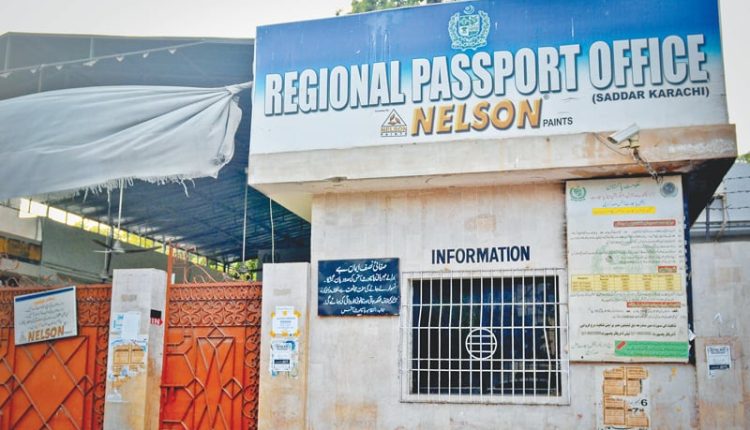Passport Office Bureaucracy: Hurdles for Pakistani Travelers
Analyzing Complex Rules, Gender Bias, and Economic Impact in Passport Processes

Navigating the bureaucracy of Pakistani government offices has long been a frustrating ordeal for its citizens. Passport offices, specifically the Directorate General of Immigration and Passports (DGIP), are no exception, with their seemingly illogical and complex rules causing considerable difficulty for Pakistanis seeking to travel abroad.
The Address Conundrum
One particularly perplexing rule demands that the address on an individual’s Computerized National Identity Card (CNIC) must match the address of the Passport Office where they are applying for or renewing their passport. While this may seem trivial, it poses a significant problem for those living in major cities like Islamabad, Lahore, and Karachi, who might not have a local address on their CNIC.
Many individuals from other cities come to these metropolises for work or study, often residing in hostels, rented rooms, or apartments. Constantly updating their temporary address on their CNIC to match their current location becomes impractical. In contrast, countries like Germany offer more flexibility, allowing passport applicants to apply at different municipalities for a fee.
Simplifying Passport Applications
To address this issue, DGIP could take inspiration from international practices and enable citizens to apply for or renew passports at any Passport Office in the country, regardless of their CNIC address.
DGIP’s Online Service: A Digital Quagmire
While DGIP’s introduction of an online passport issuance service is a step forward, it comes with its own set of challenges. Instead of utilizing the fingerprint scanning capabilities of smartphones, a technology widely accessible to the public, DGIP’s portal requires applicants to print out a fingerprint form for biometric verification.
The complications don’t end there. The fingerprint form must be scanned at a high resolution of 600 dpi, a capability not commonly available at home. Consequently, even an online service involves multiple trips to local printing shops until the fingerprints meet DGIP’s stringent requirements. If fingerprints still don’t pass muster, applicants must repeat the process. Additionally, DGIP reserves the right to call any applicant for an “interview,” ensuring that red tape remains an unavoidable part of the process for Pakistani citizens.
Gender Bias in Passport Rules
Another concern revolves around gender bias in passport rules. The Lahore High Court (LHC) recently intervened to address a rule that requires married women to have their husband’s name on their CNICs to obtain passports. This rule came to light when Khadija Shah, a lawyer, was denied a passport renewal because her ID card listed her father’s name instead of her husband’s. Khadija argued that NADRA allows married women to retain their father’s name on their ID cards, and the passport office’s policy goes against the law and the Constitution.
Economic Implications of DGIP’s Approach
The question arises as to why DGIP hasn’t adopted a centralized system similar to NADRA to simplify the process and tap into the significant remittance potential of overseas Pakistanis. By adding complexity to the immigration process, DGIP not only frustrates its citizens but also hampers Pakistan’s ability to harness remittances, especially at a time when these funds could significantly boost the nation’s economy.
Challenges Extend Beyond Procedures
Beyond procedural hurdles, Passport Offices throughout Pakistan grapple with inadequate infrastructure, inefficient queuing systems, and inadequately trained staff, exacerbating the problem. These inefficiencies have become more glaring as the number of Pakistanis emigrating has surged, with 1.37 million leaving for foreign shores in the past two years, according to recent data. The uptick in applicants has also stretched passport processing times from the promised 15 days to a frustrating 30 days, highlighting DGIP’s failure to scale its workforce to meet the rising demand.
Addressing the convoluted passport procedures and infrastructure issues is crucial to fulfill Pakistanis’ travel aspirations and unlock the economic potential of remittances. Reform within DGIP and the passport issuance process should be a top priority for the authorities as Pakistan aims to facilitate its citizens’ travel and capitalize on remittances.
